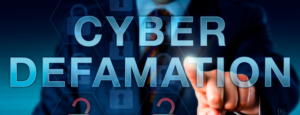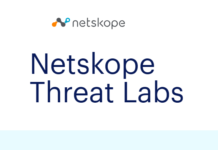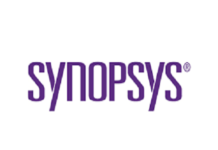
Internet is a totally different world that exist as a virtual world. Though nobody can see it but still it has abilities similar to the real world. With lot of liberties that internet brought with itself it gave way to misshaping, threats, insults etc which is termed today as cyber crime.
Defamation in layman’s language mean to rupture image of any person either through publication or oral statements. Black’s Law Dictionary defined as “an intentional false communication, either published or publicly spoken, that injures another’s reputation or good name”. Defamation includes the common law torts of libel which involves written or printed statements and slander which involves oral statements. However this defamation could be committed through internet and this new concept has filled court records with its cases like a storm.
Right to reputation or right against defamation is recognized as a basic human right. Article 12 of the Universal Declaration of Human Rights seeks to protect the reputation of individuals from attacks on reputation.
Therefore, Online reputation management is very necessary as it control the online narrative of the company, brand or a person. The internet reputation manager maintains a favorable brand image of the company, its products, people and monitors the defamation attacks.
How to know whether it is a defamation?
Defamation is an intrinsically personal wrong and the following ingredients or essentials are must to consider an act as a defamation.
These ingredients are as follows:
- Making or publishing any imputation concerning any person
- Such imputation must have been made by
- Words, either spoken or intended to be read
- Signs; or Visible representations
Such imputation must have been made with the intention of harming or with knowledge or reason to believe that it will harm the reputation of the person concerning whom it is made. From the point of view of plaintiff the process of publication is complete, when the communication reaches him. Instances of defamation in electronic form includes generating, sending or receiving ‘defamatory’ e-mails, SMS, MMS, online bulletin board messages, chat room messages, music downloads, audio files, screaming videos, digital photographs etc. on the Internet.
Who is held responsible?
An Internet service provider represents an interactive network service. First and foremost it is important to check whether the defendant is an author, editor or publisher.
The Defamation Act, 1996 grants no immunity to all those who fall within the ambit of the term ‘publisher’, as the Communications Decency Act of US (47 USC sec. 30) provides. The immunity, if any is restricted to the ‘information distributor’ only under section 1 (3) of the said Act. A ‘publisher’ would escape liability by showing that he took “reasonable care”, and “did not know”, and had no reason to believe,” that he caused or contributed to the publication of a defamatory statement.
It is obligatory to take cognizance of the section 79 of the Information Technology Act 2000 in the cases of online defamation before declaring any publisher or distributor or editor liable. The section expresses the legislative intent of granting exemption from liability of intermediary in certain cases. Though this exemption is not absolute. The intermediary will not be liable for any third party information, data or communication link made available to host by him.
What Indian legislation is available in the case of cyber defamation?
- Section 499 of Indian Penal Code, 1860 which says that, “Whoever by words, either spoken or intended to be read, or by signs or by visible representations, makes or publishes any imputation concerning any person intending to harm, or knowing or having reason to believe that such imputation will harm, the reputation of such person, is said except in the case hereinafter expected, to defame that person. The said defamation is punishable under section 500 of Indian Penal Code with an imprisonment upto 5 years or fine or both.
- Section 469 of Indian Penal Code says that whoever commits forgery, intending that the document or electronic record forged shall harm the reputation of any party, or knowing that it is likely to be used for that purpose shall be punished with imprisonment of either description for a term which may extend to three years and shall be liable for fine or both.
- Section 503 of Indian Penal Code says that whoever threatens another with any injury to his person, reputation or property, or to the person or reputation of any one in whom that person is interested, with intent to cause alarm to that person, or to case that person to do any act which he is not legally bound to do, or to omit to do any act which he is legally entitled to do, as the means of avoiding the execution of such threats, commits criminal intimidation.
- Section 66 A of the Information Technology Act. Though this law has been stuck down by Supreme Court in the year 2015. The Act says that any person who sends by means of a computer resource or a communication device any information that is grossly offensive or has menacing character or any content information which he knows to be false, but for the purpose of causing annoyance, inconvenience, danger, obstruction, insult, injury, criminal intimidation , enmity, hatred, or ill will, persistently makes by making use of such computer resource or a communication device or any electronic mail or electronic mail message for the purpose of causing annoyance or inconvenience to to deceive or to mislead the addressee or recipient about the origin of such message shall be punishable with imprisonment for a term which may extend to three years of fine or both.
Defamation Internationally:
The internet enables groups to transmit their messages even internationally therefore to determine the plausibility of regulating hate speech on this medium we must evaluate international human rights instruments on hate speech. Several international conventions affirmed threats from hate speech. U.N. Convention on the Elimination of All Forms of Racial Discrimination which commits governments to action against hate speech.
Where to lodge a complaint?
Any person who wants to make a complaint about anyone who is aggrieved of the offence of cyber defamation can make a complaint to the Cyber Crime Investigation Cell. The Cyber Crime Investigation Cell is one of the important branches of Criminal Investigation Department. (CID) who deals with high technology cyber related crimes.
Freedom of Speech and Expression:
Freedom of Speech and Expression under Article 19 of The Constitution of India also applies to internet medium. Defamation is not contradictory to Freedom of Speech and Expression as award. Free speech can sometimes tarnish the reputation of the people through words. All liberty and no strings can sometimes make things uncontrollable. Every citizen has a freedom to acquire or share knowledge (or information) using internet and related resources, subject only to reasonable restrictions. For this purpose the courts have invoke reasonable restrictions in the peak interests of morality and decency through sections 67, 67A and 67B of the Information Technology Act, 2000 which deals with publication or transmission of obscene material in electronic form.
In the backdrop of Shreya Singhal’s case (Shreya Singhal v. Union of India), and in context of the contemporary age of information technology and social networking, judiciary to decriminalize defamation (section 66A). Shreya Singhal’s case is a landmark judgement in the field of freedom of speech and expression. This epic case brings forth various dimensions which are important facets of article 19(a). Section 66A which was widely criticized for its over breadth, vagueness and its chilling effect on speech was struck down by the apex court as it was unconstitutional. However, in Swamy’s case Mishra J takes a different route and points out that there is a difference in the canvas on which the Shreya Singhal’s case has been made. In that case there was a narrow interpretation of the provision. However in Swamy’s case ‘reputation’ (which is implicit in article 21) was also involved and narrow interpretation was not the case.
Conclusion:
It is true that anonymity promotes honesty. Internet is an open system of communication with unlimited choices. The internet is enabling powerless to showcase the world about the opinions carelessly. Defamation exists even where people consider their statements as mere mockery. It is necessary today to reconsider the shape of the constitutional limitations on defamation. Properly enacting the laws created against defamation can prevent forces from publishing statements of hate and that lowers the reputation. There is lack of awareness among many individuals using the social networking websites and more often than not they are hesitant to take action against the offenders committing the offence. Thus proper and stringent laws must be made to combat defamation over the virtual world.

















